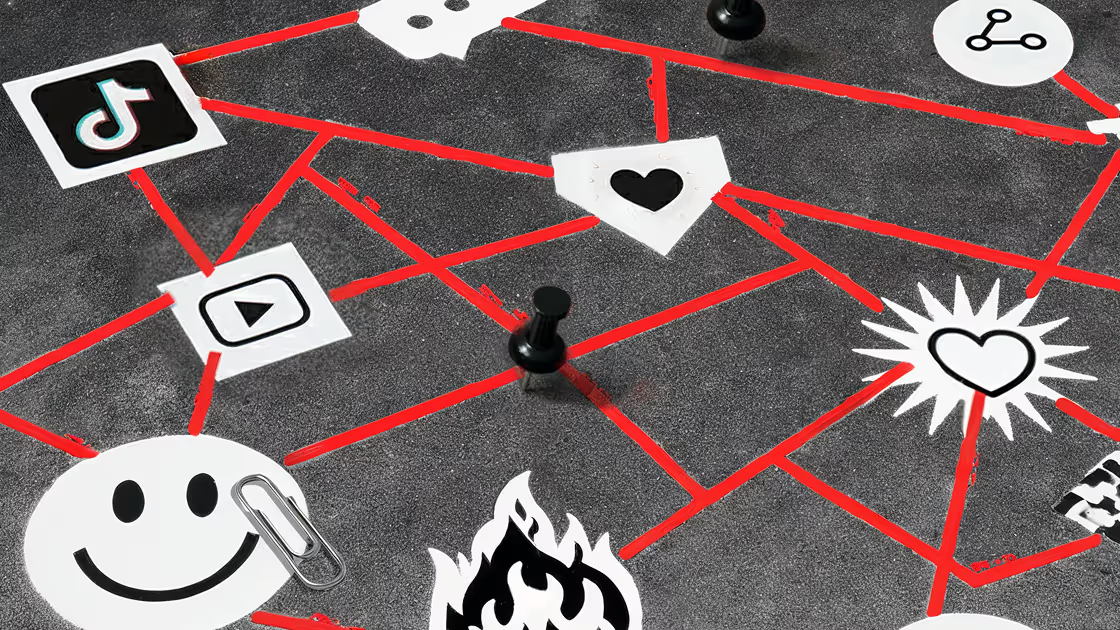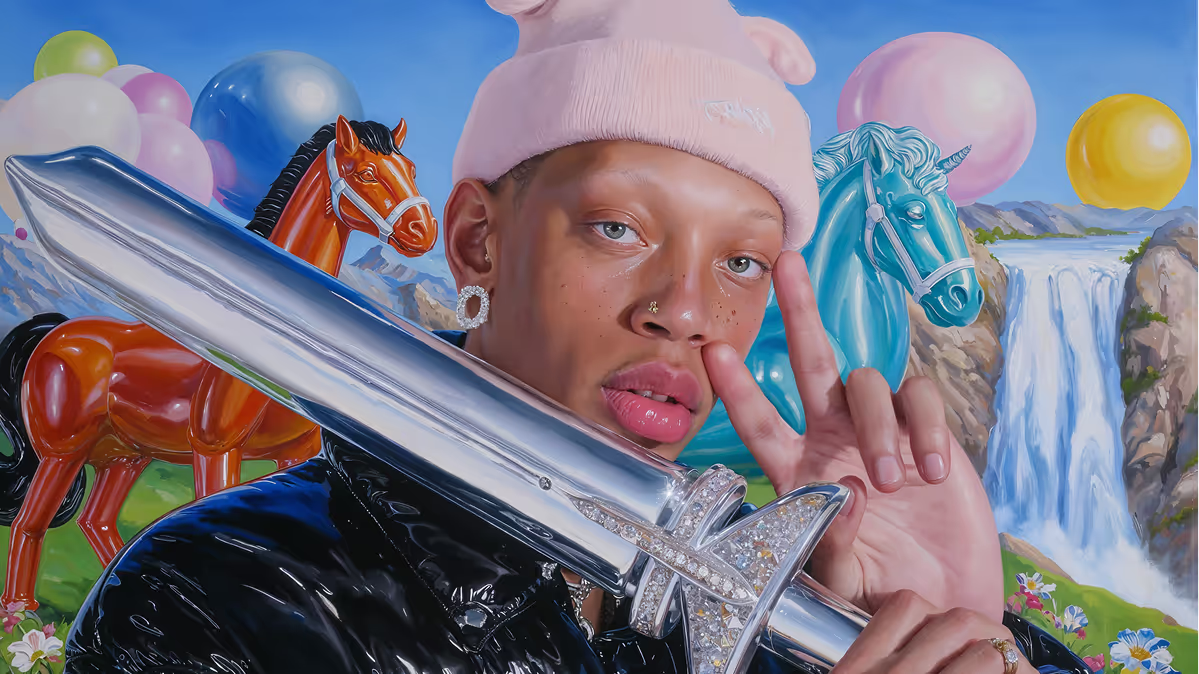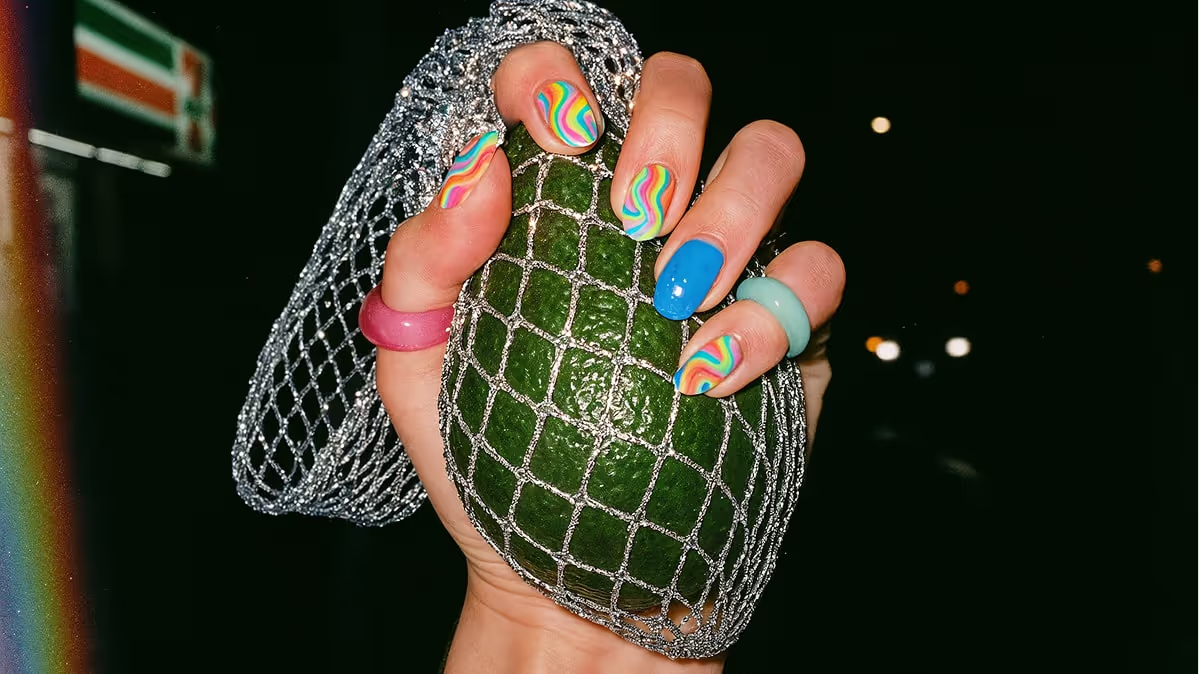
How to not be a shitty affiliate seller, a talk with So_Narly

This one’s for everyone tired of the shill parade.
Affiliate marketing isn’t a crime.
…Technically.
Yet.
But the way some of you are doing it? It’s giving “trust me, babe” in a claw clip and platform Crocs.
So we called in a pro.
Lifestyle content creator and longtime affiliate Sonali Prabhu — aka @so_narly — has been in this game since the YouTube girlie era. She’s seen affiliate culture rise, rot, and try to resurrect itself. And she’s got thoughts.
It’s 2025, and your followers are exhausted.
Every other post is “I swear this changed my life,” followed by a link to a blender, bronzer, bra, or beige throw blanket you found ten minutes ago on Amazon. You’re shotgunning recommendations and hoping the algorithm will Venmo you a check.
Affiliate links pay rent. They fund that $90 candle you light when Mercury looks at you wrong, and buy the little ceramic frogs you collect but never post because your brand is “minimalist girlcore.”
We get it.
But people are fed up. They're scrolling through a thousand clone reviews of the same Amazon sweater, wondering if anyone actually wore it for more than three minutes in a sponsored reel.
No one’s mad that you’re trying to make money; they’re angry that you’re being lazy, boring, and borderline manipulative about it.
Welcome to your intervention.
Trust Fallout and Bad Wigs
In 2013, YouTube girlies whispered, “I just linked it on RewardStyle,” with the cozy intimacy of a sleepover. It felt like a tip from a big sister, not a sales funnel. It was a vibe.
Fast-forward to the TikTok Shop pipeline, where every creator became a live-streaming sales zombie, waving around leggings like QVC had a baby with meth.
And now?
“TikTok Shop has people looking for products they can sell and that’s their only motive,” Sonali said. “They’re not showing their personality, and people aren’t getting attached to their lives. They’re just using it to make money.”
The result? Viewers don’t trust anyone anymore. Not the TikTok Epipen crowd pushing miracle eczema creams that “totally work on your dog’s paws,” not the 19-year-old skincare messiahs selling fungal acne cures from a brand launched six days ago.
“I think consumers are getting more and more pissed off,” Sonali said, and if you’ve spent any time on social media lately, you know she’s not exaggerating.
Affiliate culture is broken.
The only way out? Acknowledge that you’re a one-person drop-shipping operation with delusions of influence.
And knock it off.

If you wouldn’t tell your friends to buy it, don’t link it
You know that 2 a.m. group chat where everyone sends unhinged product reviews and screams about retinol burns? That’s your ethical baseline.
If you wouldn't enthusiastically drop the link there, don’t post it publicly for money.
“I have this internal battle all the time,” Sonali said. “Sometimes I love a skincare product so much, but what if it breaks someone else out?”
That’s what trust looks like. It’s not just “I use this.” It’s “I use this, but I know your skin might hate it. Here’s why I think it worked for me.”
Overshare. Be brutally honest. Develop a healthy fear of allergic reactions in strangers.
That’s not fear-mongering. That’s trust.
Whether you’re selling a $12 planner, a Dyson vacuum, or a protein powder that tastes like grief, if you wouldn’t text it to your inner circle with unhinged enthusiasm, don’t post it for 100,000 strangers.

Show your feral little life
No life behind the link? That’s a BUST.
Affiliate trust is built in the mess. The daily scroll of your real life. Not your highlight reel of pre-approved product porn.
It’s not enough to push product anymore. You need to show people your morning crusty eye, kitchen renovation nightmare, and Target Cart of Shame. They should feel like they’re following a friend with good taste — not a cashier at an MLM-hostage Bath & Body Works.
“People need to see your daily stuff,” Sonali says. “If you’re only posting links, no one’s going to care.”
Creators who thrive on affiliate income build entire ecosystems of trust: outfits, rituals, chaos, context. The robe you wear during the apocalypse. The snack you always eat while editing. The candle you light when you’re crying about analytics.
That’s what sells. Not the link. The vibe around it.

Build your affiliate empire slowly…or burn fast and die
Sonali didn’t wake up one day with a functioning Amazon Storefront and an army of LIKEtoKNOW.it girlies foaming at the mouth.
“I started on YouTube in 2013 and was just using RewardStyle. Then, Amazon Storefront came out and I got in right away.”
Read that again. 2013.
She’s a veteran. She didn’t go viral once and start vomiting out “favorites.”
Creators just starting? Try promoting things you LOVE.
Sonali suggests: “There are so many things in your home that you’re already using that you can try this with. See if you have a niche.”
Affiliate marketing is about showing up consistently with shit you’d use even if you weren’t making a penny.
Also, you don't need to link every item in your life. You are not a damn vending machine.

No one owes you a click
There’s a certain — let’s call it stench — that creators get when they’re five months into affiliate life and the commissions haven’t hit like they hoped. They get...clingy.
Every post has five links. The captions sound like: “RUN, don’t walk. This is my favorite thing I’ve ever owned. PLEASE BUY IT, I BEG YOU.”
It reeks of fear. And when people smell desperation, they don’t click.
This is where creators crumble — they start compromising.
You say yes to sketchy brands. You stop testing things first. You become what Sonali calls “the saturation of it all.”
Her response? “I don’t want to succumb to posting links all the time.”
Affiliate burnout is real, especially when it feels like performance art with a tracking code.
If your content isn’t interesting without a link…you don’t have content. You have a price tag and a weak personality.

If you wouldn’t eat it, rub it on your eyeball, or gift it to your nemesis — don’t recommend it
This rule is simple. Affiliate integrity means testing the product like a maniac.
“I do research on companies and products before even saying yes, especially when it comes to skincare,” Sonali said.
People trust you with their faces, their money, their zits — you better come correct.
Test it. Destroy it. Apply it during your period. Use it in a heat wave. Use it while crying over someone who ghosted you.
Do not — DO NOT — copy and paste the brand’s talking points and pretend it’s a review.
Good affiliate creators are obsessive. You need to test things like a gremlin with a grudge. Put the pan in the dishwasher. Spill wine on the rug. Melt the candle during a blackout.
It doesn't deserve your link if it can’t survive your real life.
Test it like mad before you shill it like a saint.

Pick a damn platform.
Let’s talk logistics. Half of you are linking on Amazon, Rakuten, Impact, Shopify Collabs, TikTok Shop, your weird cousin’s Google Doc.
No one is clicking all of that. Especially when they’re on the toilet, half-asleep, trying to remember the leggings you mentioned once in a Story two weeks ago.
“I’m a huge LIKEtoKNOW.it person,” Sonali says. “But businesses all having their own affiliate platforms? They’re driving me crazy. I’m not going to keep up with all of them.”
It’s starting to feel like streaming services. Remember when it was just Netflix and we were thriving? Now you need a spreadsheet and a prayer just to find the show everyone’s talking about. That’s what affiliate marketing is turning into — a cluster of logins, tracking codes, and apps that make your audience want to toss their phone into a lake.
Pick your lane. Double down. Make it easy to shop YOU.
Affiliate marketing should feel like walking into your curated, slightly unhinged bodega — not a corporate obstacle course designed by UX demons.

More followers help. But they’re not a shortcut to trust
“Having a bit of a following helps when you're starting affiliate,” Sonali says. “For your confidence and for traffic.”
And she’s right. More eyeballs = more clicks. That’s just math.
But followers alone don’t equal trust.
That comes from showing up consistently. From posting like a human being. From saying no when something feels off. From telling the truth about products that disappointed you.
A brutal lie sold to baby creators is that “anyone can make six figures in affiliate marketing with zero followers.”
Technically? Maybe. Realistically? No.
Affiliate links are a trust economy. They require a relationship. And relationships take time, visibility, and a little parasocial delusion.
You have to earn the clicks. Don't beg for them.
This isn’t meant to discourage you. It’s a reminder that growing slow is better than growing fake. Every link you post is a deposit or a withdrawal in your audience’s trust bank. You decide your balance.

Say no more often
Affiliate creators should be picky, annoying, skeptical, and deeply allergic to hype.
The best affiliate creators say no constantly. They say no to weird brand requests. They say no to trending garbage. They say no to their urge to monetize every damn thing.
Because every “no” protects your “yes.”
Sonali gets dozens of requests a week. She filters ruthlessly.
If you’re trying to build trust, not only commissions, your gut needs to be your CEO.
Say no to things that feel wrong. Say no to things that feel fine but not amazing. Say no even when the money is good.
Say yes only when it feels like giving your audience a gift.
TL;DR: Affiliate Marketing isn’t the Problem. You are (Maybe.)
Look. We love a well-placed affiliate link. We love creators making money. We love capitalism (deranged, broken, beautiful capitalism) when it works in favor of the weird, passionate people on the internet.
But if you’re hemorrhaging trust for $3.14 in commission and a 15-second unboxing video? You’re doing it wrong. Do not recommend a face oil you’ve used twice. Do not recommend a $300 espresso machine you haven’t even descaled. Do not recommend a blender that barely blends.
The answer isn’t to quit affiliate marketing. It’s to stop being shitty at it.
Be human. Be quirky. Be paranoid about skin rashes. Be annoying about research. Be obsessed with your audience’s well-being.
That’s how you build trust. And trust? That’s what prints money.
Not the link in bio. Not the coupon code. Just you.
Read on:


All
Artificial Exploitation


All
She Sold her Bathwater, but You Drank it


All
CRIMINAL INVESTIGATION REPORT: THE GLEEFUL DEATH OF TRADITIONAL MARKETING


All
Hot Takes, Typos, and Total Chaos: The Secret Tactics Driving Online Engagement


All
THE DEATH MARCH OF HYPERCOLOR BALLOON SWORDS


All
“They’re Watching Me”: Gang Stalking, Internet Delusions, & the Modern Mindf*ck


All
The Unripest Avocado: Nicholas Perry and the Dangers of Audience Capture


All
Branded Since Birth


All
How to not be a shitty affiliate seller, a talk with So_Narly


All
Parasocial Profit: The Unethical Underbelly of Affiliate Marketing


All
Stitch Incoming: Annie Stafford, Niche, and the Future of Fashion


All
Step right up!


All
Cooking Up a Social Media Empire


All
Right & Wrong Reasons to Expand


All
Have Influencers Peaked?


All
What’s Your Creator Fortune?


All
Mercy Kill Your Online Persona


All
Still Posting Post-Death


All
Cardboard Pizza: The Deadly Art of Losing Your Social Media Credibility


All
From Mr. Beast to Mr. Least?


All
Robots & Red Lace


All
Parental Discretion (Still) Advised


All
It’s 2024 and — Wait, Email Doesn’t Suck?


All
What’s a like on Instagram ‘worth’ in 2024?


All
A crash course in "crash course"


All
Speed sells: Why it’s important to respond lickety-split
© 2026 Manychat, Inc.






.avif)

















